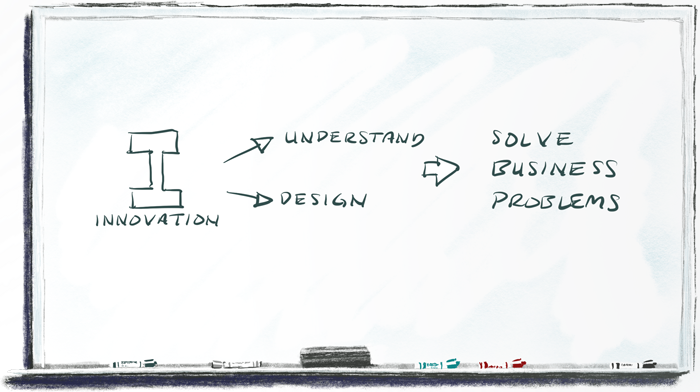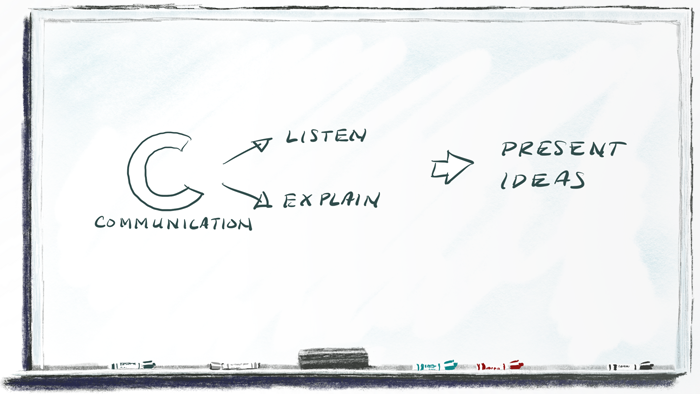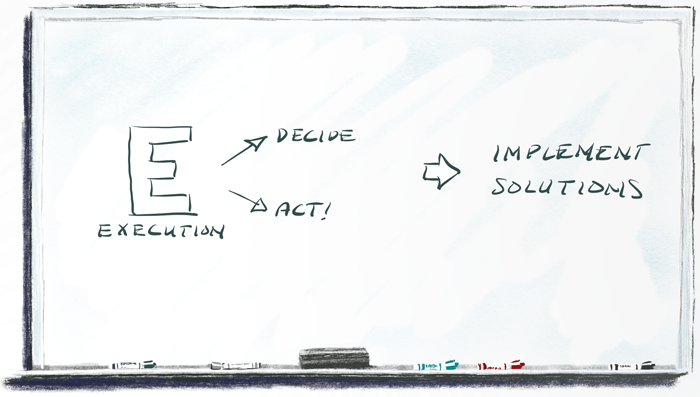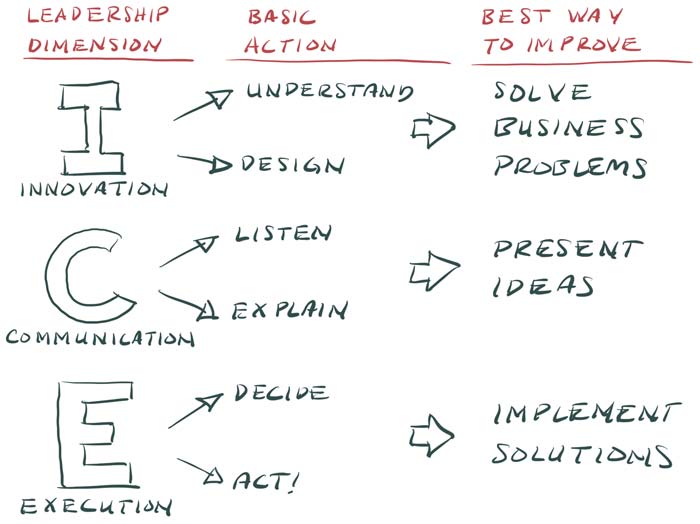Get Better Faster

If you want to double the size of your business leadership box, you will need to practice the Six Basic Actions of business leadership. But business is not like basketball, where you can spend a great deal of time practicing between games. In business every day is game day. And no one is paying you to learn. You are getting paid to get the right things done right now. So if we are going to come up with a way to ”practice” these six basic actions, it’s going to need to happen while you are actually getting your job done.
“Practice” is just a set of activities that you choose to do to get better at something as quickly as possible. So what we need to find are types of work that increase our mastery of the six fundamental actions – Understanding, Designing, Listening, Explaining, Deciding and Acting – the fastest. If we could identify those, and you could do as much of those types of work as possible, we would theoretically be increasing your business leadership capacity the fastest.
The first two basic actions, understanding and designing, support innovation -- the ability to generate good business ideas. But running around dreaming up random business ideas is not what you were hired to do. You were hired to do your job, not find ways for everyone else to do their job better. But every business is full of situations that are desperate for good ideas, and if you can attach yourself to one of those situations you will get a great workout for your innovation muscles. These situations are called business problems.
A business problem is any situation where the company, due to some kind of impediment, is not able to achieve its goals. Problems can involve any part of the business and can be virtually anything, but they all boil down to one of two issues: we are not making enough money or we are in danger of losing a bunch of money. If you want to get better at understanding and designing, you want to be put in charge of solving one of these business problems. Business problems are almost magical in their ability to both force you to improve your understanding and designing skills, and make the support you need to do so available to you. It doesn’t matter how big or small the problem is, what matters is that the problem is important to the business.
If you want to get better at understanding and designing, you want to spend as much time as possible solving important business problems.
The second two basic actions, listening and explaining, are related to communicating. So just like we did for understanding and designing, we want to find the business situation that puts the most stress on those muscles to cause them to grow. For listening and explaining, that happens to be formally presenting ideas to senior management. There is no situation that puts higher demands on one’s ability to concisely and accurately explain complex ideas than making a formal presentation to people that are several levels higher than you in the organization. And there is also no situation where it is more challenging to effectively listen than when you are getting peppered with questions about the proposal you are making by people that are much smarter than you. Like the senior managers you are presenting your ideas to that have a personal stake in making sure your ideas are good.
So if you want to get better at listening and explaining, you want to get into a situation where you will have to formally present your ideas to senior management.
The last two basic actions, deciding and acting, relate to execution and getting things done. Here, again, we are looking for the business situation that will put the most pressure on those skills. That situation is managing a project that is implementing some important change in the organization. Complex projects have a way of requiring their leaders to make a multitude of decisions under time constraints and force them to get things done or fail in a painfully visible way. Projects either get done or they don’t, and the pressure the leader feels is pressure that will improve their ability to make decisions and take action. Project management is a formal practice with tools and certifications and a lot of things that allow people that choose that field as a career to manage endeavors of enormous complexity, like building a sky scraper or airport or putting a man on the moon. You don’t need to be managing something of that complexity to get better at executing, but it needs to be complex enough to require a leader to keep things on track and make sure it all gets done. The kind of projects I’m talking about could be anything, but they all involve the implementation of some kind of solution to a problem.
If you want to get better at deciding and acting, implement solutions.
What is convenient about these three types of work, solving business problems, presenting ideas, and implementing solutions, is that they are all related to the cycle of solving business problems. If you want to be put in charge of implementing a solution, a good way to do that is to formally present that solution to senior management for their approval to implement it. And if you want to have an excuse to formally present a solution to a big problem to senior management, find a big business problem to solve.
The best way to find a big business problem to solve, though, is not to go around looking for one. It is to let one find you. Businesses, especially well run businesses, counterintuitively, have vastly more problems than they have people capable of solving them. This is because well run businesses are well run because their leadership has a clear understanding of how much money they are making, why, and what is in the way of making more. And those things that are in the way, as we discussed above, are business problems. If you demonstrate you have good problem solving skills your boss will delegate problems to you to solve. And if you demonstrate you can solve those, she will delegate some of the problems that were delegated directly to her, to you. And if you demonstrate you can solve those, her boss will start to delegate problems to you as will his or her peers and it will grow from there.
If you look at the career of any highly successful business leader you will see that their career has been filled with problem after problem that they were responsible for solving. And not only did solving those problems develop their skills and allow them to solve bigger problems, they also earned them promotions that increased their access to new and bigger problems and to resources that increased their capacity to continue learning faster and expanded the scope of the business they could add value to.
If building your business leadership capacity was space travel, solving business problems would be warp drive. It is a profoundly powerful way to improve your skills.



